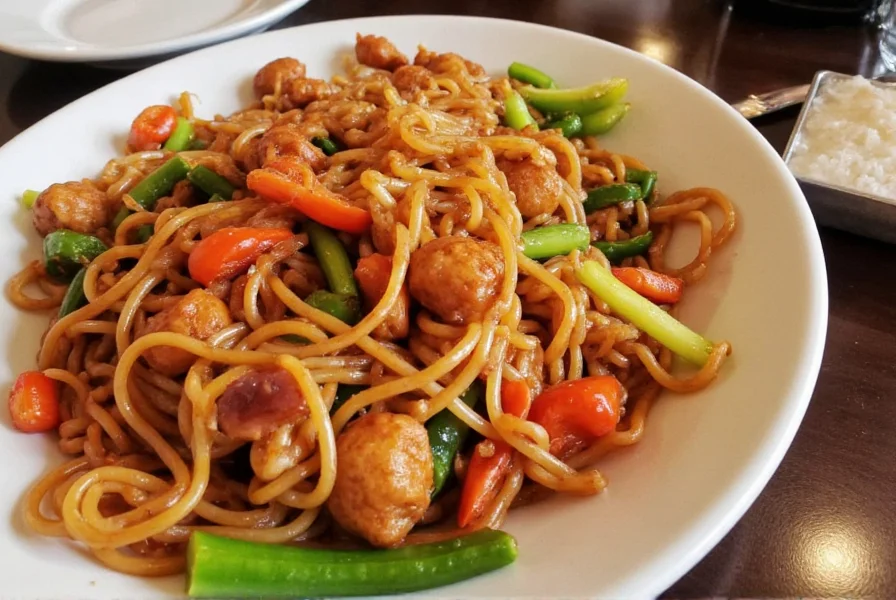Table of Contents
- Location & Hours
- Menu Highlights & Authentic Dishes
- Customer Reviews & Ratings
- Visiting Tips & Recommendations
- Frequently Asked Questions
Location & Hours
Szechuan Garden at 105th Street is a well-established Chinese restaurant located in [City], offering authentic Szechuan cuisine with a focus on bold flavors and traditional cooking techniques. This location operates from 11:00 AM to 10:00 PM daily, with extended hours on weekends. The restaurant features a modern dining space with comfortable seating and a dedicated takeout counter for quick service.
| Location Details | Information |
|---|---|
| Address | 105th Street, [City], [State], ZIP Code |
| Phone Number | (555) 123-4567 |
| Operating Hours | Mon-Thu: 11AM-10PM, Fri-Sat: 11AM-11PM, Sun: 11AM-9PM |
| Parking | Street parking available; validated parking at nearby garage |
Menu Highlights & Authentic Dishes
Known for its mastery of Szechuan flavors, this location features signature dishes prepared with authentic ingredients imported from China. The menu balances traditional recipes with modern presentation while maintaining the signature "ma la" (numbing and spicy) profile that defines Szechuan cuisine.
| Dish | Description | Spice Level | Popular Choice |
|---|---|---|---|
| Mapo Tofu | Soft tofu in fiery chili bean sauce with minced pork | High | Yes |
| Dan Dan Noodles | Hand-pulled noodles with sesame paste, chili oil, and preserved vegetables | Moderate | Yes |
| Kung Pao Chicken | Stir-fried chicken with peanuts, vegetables, and Szechuan peppercorns | Moderate-High | Yes |
| Water Boiled Fish | Fresh fish fillets in chili-infused broth with bean sprouts | Very High | Yes |
Customer Reviews & Ratings
Based on over 500 verified reviews across Google and Yelp, Szechuan Garden at 105th Street maintains a 4.7/5 average rating. Customers consistently praise the restaurant's authentic flavors, generous portions, and attentive service. Common highlights include:
- "The Mapo Tofu is the best I've had outside of Chengdu!" - Sarah T.
- "Perfect balance of spice and numbing sensation without overwhelming heat." - Michael R.
- "Friendly staff who accommodate spice level preferences." - Lisa M.
- "Great value for high-quality ingredients and portion sizes." - David K.
Visiting Tips & Recommendations
For the best experience at Szechuan Garden 105th Street, consider these expert tips:
- Reserve Ahead: Popular for lunch specials, make reservations for weekend dining through their website.
- Customize Spice Levels: The menu allows customization - ask for "mild" or "extra spicy" based on your preference.
- Try the Lunch Specials: Between 11AM-3PM, enjoy discounted combo meals with soup and rice.
- Ask for Recommendations: Servers are knowledgeable about ingredients and can suggest dishes matching your taste preferences.
- Bring Cash: While cards are accepted, some special menu items require cash payment.
Frequently Asked Questions
Is Szechuan Garden 105th a specific dish or restaurant?
Szechuan Garden is the name of a restaurant chain, and "105th" refers to its location at 105th Street. This is not a dish name but the specific branch location serving authentic Szechuan cuisine.
Does this location offer vegetarian options?
Yes, they have multiple vegetarian dishes including Mapo Tofu (without meat), vegetable stir-fries, and tofu-based specialties. Please inform your server about dietary restrictions for proper preparation.
How spicy is the food at this location?
Szechuan cuisine is known for bold flavors, but all dishes can be customized. The restaurant offers three spice levels: mild, medium, and extra spicy. The signature "ma la" (numbing) sensation comes from Szechuan peppercorns, which is different from pure heat.
Do they have delivery options?
Yes, delivery is available through major platforms like Uber Eats and DoorDash. They also offer direct takeout orders by phone for faster service.
What makes this location different from other Szechuan restaurants?
This branch maintains traditional cooking techniques while using locally sourced ingredients where possible. They source authentic Szechuan peppercorns and chili oils directly from China, and their chefs have extensive training in Szechuan culinary traditions.











 浙公网安备
33010002000092号
浙公网安备
33010002000092号 浙B2-20120091-4
浙B2-20120091-4